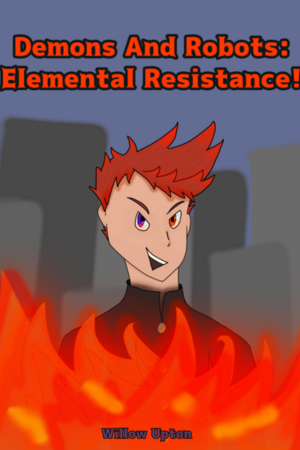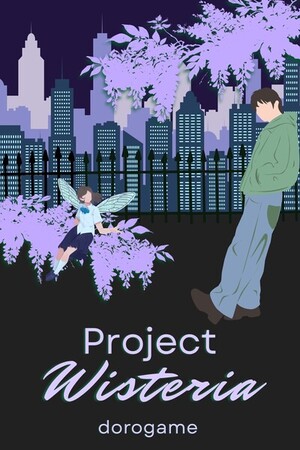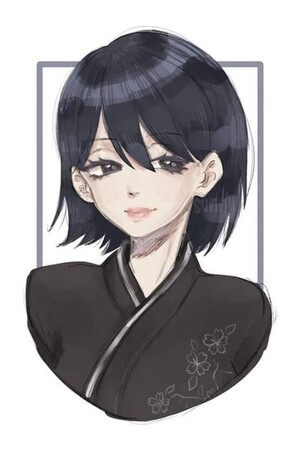Chapter 1:
Chapter 1 - Beyond the horizon of dreams, chaos finds him
The flower that cannot bloom
I hate nights. They are cold, dark and lonely.
Each night, I hear whispers in my ears, voices that I don't recognize, names I have forgotten and memories that evade me. Their cold embrace numbs my body — the joys I feel, the horrors, I fear. And as I curl up in the corner of my room, all of it fades away. Slowly, like a predator approaching its prey, darkness of night closes in on me, swallowing me in a vortex of the past, as echoes of pain paint the canvas of my heart.
I know what those whispers want. They want to drag me into the abyss of the past. To remind me of the scars and sorrow I have forgotten. No, made to forget. Each day, each night they torment me. At one point, I, too wished to know of the echoes they echoed, but now, I have become numb to the pain, to the torture and to the dreadful bites of my old self. It was as if an external force stopped me from remembering.
That’s why, at nights when the world sleeps in peace, I gaze at the stars. They are the only comfort that has preserved my sense of self in these battles at night. Seeing them twinkle in the vast darkness fills me with a strange warm emotion. It makes me want to hold on, that it would be fine, that one day I too will be able to twinkle. Is it hope? I wonder.
…
Long time ago, a man born into slavery dared to dream of freedom. Defying his fate, desiring the taboo, he rose above the prison of slavery. That moment marked the rise of a conqueror, one that would come to be known as “Conqueror of mountains of corpses and rivers of blood.”
Jiyūmaru — he who drowned suns in blood — ruled over the six kingdoms in the vampire continent. His name alone struck fear in the hearts of the twelve great races.
Yet, none of his accomplishments or what the Elven people would call crimes — could compare to his invasion of Alfheim.
Alfheim, the sacred abode of high elves, was said to be the only piece of land in the vampire continent capable of resisting the asuras and devas. They whispered that wisdom that didn't exist in all hundred realms existed on Alfheim alone. It was the last kingdom that had survived the prior wars in vampire continent.
But all of it changed that day, when Mukō Ryūji — as Jiyūmaru’s followers called him — raided Alfheim.
From the poets to historians, whoever you ask, the story remains same: blood, everywhere
A conquest that lasted fifteen days, wiped out eighty percent of the population.
They say no man was left in Alfheim after that war.
Thousands of children became fatherless.
Thousands of women became widows.
Women were raped, the children sold into slavery, and the elders fed to the beasts. All hell broke loose on Alfheim. In the future, the world would call it the Dark ages. The Elves named it the era of Der Dämon der Weisheitvernichtung — the Age of the demon who devoured wisdom.
Yet, as the saying goes, time heals, and all things return to how they once were. So, it did. When the wheel of time turned, even the mightiest conqueror crumbled beneath its march. Peace returned to Alfheim. The scars of war and sorrow hid under the declarations and cries of freedom.
During the two hundred years of rule of Jiyumaru and his bloodline, Alfheim changed. Mlecchians — some his followers, some brought in chains, others by promise — made Alfheim their home. Overtime, the line’s blurred: children were born who no longer remembered which side of their blood, had once stood on.
But silence does not always mean peace. Beneath the surface, a new spark caught flame. After nearly two centuries, revolution rose not with a roar, but a whisper and — from that whisper, a new utopia was born.
A promised land, forged by both Elf and Mlecchian hands — for both the Elves and Mlecchians.
When words were forbidden and songs were silenced, only one voice echoed through the land of wisdom:
“Let there be equality. Let there be peace. Let there be freedom.
The poets described it like a mirage in the vast desert of barbarism. A fleeting fantasy, a hopeless dream of men. A haven where every man is equal, where every man is free and every wish comes true.
A true utopia.
And so, they called it, “Eden.”
….
“Gates...” the word poured from my lips unbidden.
As a brisk mountain wind whipped past me, the frosty air of early dawn stung my skin – a stark contrast to the scorching winds of the south that now felt oddly nostalgic to me. The lumbering steps of the majestic diplodocus, pulling our carriage, made the earth beneath tremble. It dawned on me; we had finally reached our destination.
Nestled in a lush valley, the mythical city bathed in crisp, cool air of mountains. Cradled by the snow-capped mountains, the city seemed to be hidden from the rest of the continent. A river sliced through mountains, its waters roaring, as if piercing through the very heart of the range. The city gates towered over the landscape like a colossus monument, their grandeur guiding weary travels toward the promised city.
Butas we neared the city gates., a thick tension hung in the air, more palpable than the brisk mountain wind that whispered through trees. Loud voices filled the surroundings —a storm of frantic voices, stifled sobs and clattering footsteps. The once- serene atmosphere was replaced by a cacophony of sound, where confusion and worry clashed like an untuned orchestra.
The carriage slowed to an uneasy halt, revealing the source of the frenzy. A massive cloud, dark as if someone had spilled ink across the sky, hung low over the city. It moved as though alive, swallowing the once-flawless view of the city. Yet, this was no mere fog or mist – it was a smothering darkness that devoured the skyline. The air thickened, reeking of charred metal and every breath felt like swallowing ash. I gagged as the stench hit me, burnt hair and sulfur. So strong that it prickled like needles in my nose.
The revelation of looming clouds and shifting atmosphere proved to be only a disquieting prelude to the chaos that awaited us at the gates. As we moved closer, the city gates stood barricaded — blocked with wooden beams, iron bars, and piles of rubbles.
A large crowd of people had gathered, clamoring at the men, dressed in red and black uniforms. The mob was a blend of different ages, gender and races but all wore the same expression: desperation and fury.
A hundred voices tore through the air, shouting, demanding, begging to be heard.
The uniformed men, seemingly guards, held spears and shields, using them to push and restrain the mob.
"Let us in! We have families inside!” the crowd yelled in unison.
"What’s going on? Why have you closed the gates? I need to meet my children” a father pitched.
The frantic crowd screamed and pleaded for answers, but the guards were firm and unmoved. They were indifferent to the people’s anguish. It was an unusual situation, not what we had expected. With wonder and apprehension, we watched the scene unfold before us. Ludwig and I dismounted from the nightshades, our shadowy stallion, as we sought to know what was happening. It was then that one of the guards noticed our presence and approached us.
He met our gaze with a weary and grim expression, his face pale and drawn. Slowly, he shook his head, as though burdened by a truth he could scarcely admit and then murmured in a low voice, “I’m sorry, you can’t enter. The city is in crisis.”
The words struck me like a physical blow. After months of travel, of clinging to hope of entering the fabled city, the gates were before me – only to slam shut. My breath hitched, fingers tightening around the reigns of my nightshade. The voices around us blurred into the white noise and I felt my hopes collapsing, fragile as a sandcastle swept away by the tide. I felt sick. I wanted to run away. It couldn’t end like this.
Then, cutting through the numbness, a voice calm and stern like the frosty winds of Kusherk, snapped me out of it. I turned. A man stood beside me.
He was tall, and handsome, his silver hair falling in soft waves over his forehead. Serene blue eyes sparkled with intelligence yet radiated composure, while long bangs veiled his left eye, adding to his mysterious charm. His lips curved into a faint smile as he began to speak.
“Crisis? What crisis?” Izel asked.
His voice was clear and crisp, slicing through the air like a razor blade. The guard flinched at its abrupt edge, gasping before dropping his gaze. “I- I’m sorry, I can’t tell you more. But trust me, it’s better to turn back and leave,” he said, his eyes filled with pity and sorrow as he looked at us.
“I see,” Izel’s reply was glacial, devoid of disappointment. Had this been a Saint Marie book, he’d be the sort of man women scribbled over its margins — cool and untouchable. His charming smile and mysterious air made him utterly irresistible.
“What?” a crass, unfiltered voice interjected. “We have come so far. I have got a sick mother waiting behind those gates, you know. What If her health gets worse. Hey, can’t you do something about it, Mr. guard?”
The voice helpless, yet firm, carried just enough emotion to stir pity. I didn't even have to turn to look who it was — the moment he opened his mouth. I knew. Ludwig. And knowing full well that he was lying through his teeth. I could only force a smile in admiration and disbelief. Once again, Ludwig had concurred another of his lazy excuses to charm his way through.
And it was… effective.
The guard, deceived by his white lie, softened. His once calm expression faltered as his eyes darted around nervously. Audible sighs and visible hesitations confirmed my suspicion as he struggled to resist Ludwig's emotional manipulation. Truth to be told, it was surprising. I had expected him (the guard) to crush Ludwig’s plea without mercy. At least that’s what I would have done.
“Uh-uh,” he stuttered, words tumbling over each other, unable to form a proper reply. His eyes flicked at Ludwig with a blend of pity and guilt, clearly debating whether to bend the rules.
Sensing weakness Ludwig pounced, like a cat creeping upon a feeble mouse.
"Please, I beg you. I'm willing to pay — goods, coins. Anything," He pleaded, voice steeped in the same insincere, helpless, perfectly feigned.
In the memoirs of the Duke of Albarine, The Duke's reflections, the duke wrote as I quote, “where labor fails to reap the prize. Let crafty wiles the spoils devise.”
A straightforward lesson. Cheating, manipulation, lying – or underhanded tricks, whatever they may be, he had succeeded in his attempts. As they say, the end justifies the means.
Meanwhile, we stood still, patiently awaiting the guard's response. His eyes wandered and his head lowered, perhaps in shame, perhaps in frustration. The silence cracked under the weight of the unspoken, a decision lingered in the air.
Then, the guard straightened and bowed. His voice rang out, clear and loud yet kind and warm. He clenched his hand into a fist, staring straight into Ludwig’s eyes. Those dim and hazy eyes now blazed with an unspeakable and undefined fire, a sudden strength and resolve.
“I am sorry………”
“I understand. Y-ou all must be in haste. You have someone you love waiting inside, right? A wife, who makes the most delicious food. A darling daughter who runs into your arms the moment you walk through the door. Or maybe a mother – who nags endlessly, but treats you like you were still her precious child. The thought of never seeing them. It fills me with dread. The pain...it trembles through me.”
He paused, trembling slightly, but then his voice steadied
“But do not fret. This is Eden. Justice and dreams truly exist here. It's a beautiful city. That's why I beg you — please do not wish to enter. Not now. Not like this. I’m sure your mother is safe and well. And when this end — I will personally escort you to her. So, I… am sorry I cannot accept your request.”
…
Long ago, someone shared something with me. An enigmatic whisper- an utterance so profound, etching its imprint on my soul. A fleeting memory I long to recall. It lives within me, an indelible part of who I am, yet it teeters on a precipice of forgetfulness.
Yet, for just a moment, maybe a mere heartbeat – no, perhaps for a breath. I glimpsed at a shimmering shard of that memory.
The guard's heartfelt confession stirred something in me. It reached deep, into the quiet dormant embers of my heart that I once believed indifferent. Emotions I had thought extinct, long buried beneath the shell of apathy awakened by the sincerity he excluded.
And I felt the thirst.
A thirst for the same burning passion he so ardently displayed
It wasn't just me. Even Izel, the master of wry grins and effortless deceit, fell into silence, surrendering to the solemnity of that moment. Even the perpetually disinterested Ludwig spared the guard an inscrutable glance.
A veil of silence enveloped us. Not one of us dared to break its sanctity, fearing that our unruly words might destroy the ephemeral yet radiant colors of these nascent emotions. In this cryptic world, where sentiments assumed hues and emanated brilliance, the guard shone like a distant sun illuminating the vast expanse of our souls.
The silence lingered, like a fragile web spun in the stillness of shared emotions, until Boss, the enigmatic lizard-man shattered it.
“YY-ouu th-hreee do-o love wasting time.”
His words, raw and unpolished, cut through that profound silence like an uncut gem. A pang of sadness welled up within me as if the fragile threads of emotions had been abruptly torn apart. The ephemeral hues and emanated radiance now fractured and crushed under the weight of Boss’s casual words. His rasping voice, usually pragmatic and concise, now echoed through the air.
“ Whaatt’s with those faceesss” Boss drawled, his word carrying the reptilian accent as thick as the southern winds we had left behind. Eyes, typically dulled by cynicism, now gleamed with surprise and amusement. He locked gazes with the guard and then flicked a claw in his direction.
“ Yo-uu, Come here”.
The guard jerked his hide side to side, his face a canvas of bewilderment. Yet, he obeyed, steps tentative, a cocktail of fear and confusion in his gaze. A relatable first experience, I would say.
Boss handed the guard an envelope with not a trace of warmth. His voice dropped to gravely murmur: “Take this to your Captain. Tell him, Chaukkukoushka, commander of the Rakshasa 3rd division, has come.”
The guard’s hand trembled as he accepted the letter. Recognition flashes his face at Boss’s name and title. Without a word, he spun on his heel and sprinted towards the barracks.
Minutes later, the superior arrived – not to greet us, but to pay homage to Chaukkukoushka.
The military captain, an elf of striking presence, stood with an air of authority that commanded immediate respect. Though lithe, yet well-built frame and ageless demeanor suggested he was no ordinary man. His light brown hair cascaded gracefully, framing his noble visage, while his piercing light blue eyes mirrored the tranquil depths of a calm lake. Draped in a resplendent uniform, adorned with intricate embroidery, he proudly displayed the elven crest- a depiction of an elegant woman holding a delicate lily flower. The Elven symbol of purity and nature.
The elf inclined his head towards Chaukkukoushka in a formal gesture. “Greetings, General, I’m Thelian, the Captain of Eden’s elite force.” His fingers twitched – just once, before he continued with polished formality.
“We received word from high command that you would be gracing Eden. …Though, we never anticipated it would be at this..dire hour.” A shadow of strain passed behind his light eyes as he added, “Please excuse our rudeness for such reception.”
Chaukkukoushka, exhaled through his nostrils – a sound like grinding stone. “No need for such formality, Captain.” His tongue flicked out, tasting the thick air. “And don’t call me that. I’ve forsaken that title.” Then, a clawed hand gestured toward the ashen sky. “That aside…tell me, Captain. What calamity has dragged Eden into such affairs?
A weighted silence lingered. Thelian face flickered with uncharacteristic hesitation. When he finally spoke, his lips moved with his characteristic elegance. “General” A stiff nod. “You are right. A calamity has fallen.” His light eyes glancing at the mob and trembling guards, then moving back to Boss. “If it’s… acceptable, follow me to the barracks.” The title slipped out despite the warning, like a habit, but the boss didn’t mind it as if used to it.
As he motioned us to follow him, we walked through the rowdy army corridor; the urgency in the air became more palpable with each step. The disarray at the gates seemed to intensify. The air was thick with worry and frenzied conversations of the city’s inhabitants created a sense of unease and chaos. It was clear that we were walking straight into a disaster.




Please sign in to leave a comment.